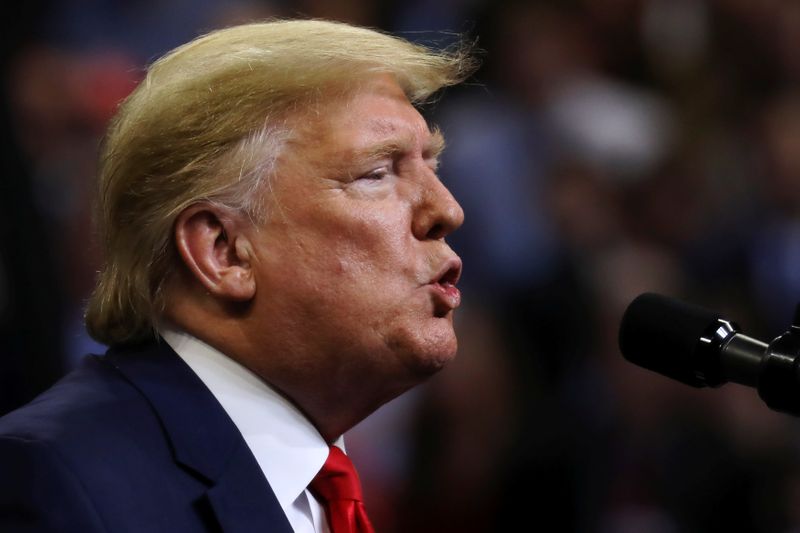This post was originally published on this site
https://i-invdn-com.akamaized.net/trkd-images/LYNXMPEG0U2FU_L.jpg
WASHINGTON (Reuters) – President Donald Trump signed an executive order on Friday aimed at preventing counterfeit products from abroad from being sold to U.S. citizens who shop online using Amazon.com (O:), Walmart.com (N:) or other ecommerce websites, the White House said.
Presidential trade adviser Peter Navarro urged Amazon, Walmart and digital commerce sites to take steps to ensure that the goods they sell are safe and legal.
“If they don’t, DHS will take steps to ensure they do,” he told reporters, referring to the Department of Homeland Security.
Part of the policy was aimed at preventing narcotics, like fentanyl, from entering the United States at a time when the country is fighting widespread opioid addiction, the order said.
As part of the order, the president asked DHS to “consider appropriate measures” to ensure that companies that sell products from overseas do not ship knockoffs, which they have argued can damage the U.S. economy, cost American jobs, support criminal activity and potentially harm consumers.
The president also asked DHS to draw up rules to help identify companies that were suspended from importing into the United States, and sought to evade those suspensions.
Additionally, the order asks DHS to draw up rules to identify companies that have a high rate of contraband among their shipments. Those with high rates may face more onerous inspections, the order said.
“The trafficking of counterfeit and pirated goods is a scourge that causes significant harm to our workers, consumers, intellectual property owners, and economy,” U.S. Trade Representative Robert Lighthizer said in a statement.
He said Trump had made intellectual property protection and enforcement against pirated and counterfeit goods a priority in America’s trade relationships, with intellectual property rights a key part of a new North American trade agreement and the first phase of a U.S.-China trade deal.
Customs and Border Protection, an arm of DHS, seized 27,599 shipments with intellectual property rights violations in the fiscal year ended Sept. 30, 2019. If those products had been genuine, they would have had a combined retail value of over $1.5 billion, the agency said in its annual report on trade and travel.
Fusion Media or anyone involved with Fusion Media will not accept any liability for loss or damage as a result of reliance on the information including data, quotes, charts and buy/sell signals contained within this website. Please be fully informed regarding the risks and costs associated with trading the financial markets, it is one of the riskiest investment forms possible.

